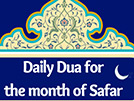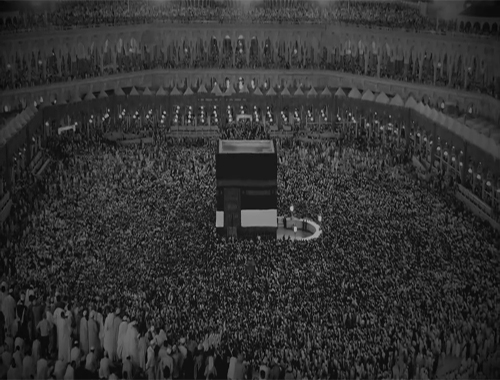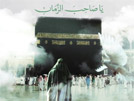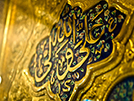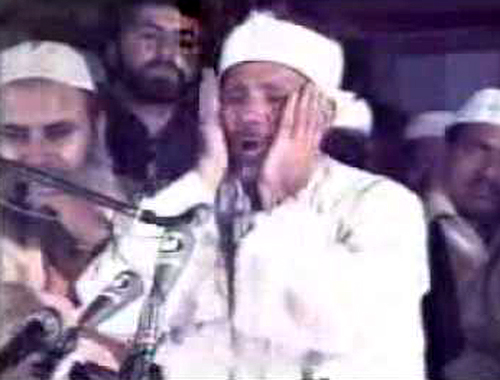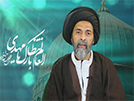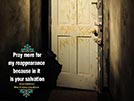Introduction
- Details
- Hits: 2433
In the Name of Allah,the Beneficent,the Merciful
Sura A'la
(The Most Hish)
No.87 (19 Verses)
Contents of Sura:
This Sura is made up of two parts. In the first part, the words are directed to the Prophet (p.b.u.h.), himself, containing some instructions regarding the praise of Allah and the fulfilment of his prophecy. Corresponding to that, it names seven attributes of allah; the Most High.
The second part is about the humble believers, and the wretched rejecters. It expresses, concisely, the causes for their felicity and wickedness.
At the end of the Sura, it is stated that these facts (pointed out in these verses) are mentioned not only in the Holy Qur'an, but are also mentioned in the earlier Scriptures; as well as the Scriptures of Abraham and Moses.
The Virtue in Studying this Sura:
There are many narrations cited on the virtue of reciting this Sura; among them is a tradition from the Prophet Mohammad (p.b.u.h.) which says: Allah will reward him, who recites this Sura, the number of words, tenfold, which were revealed to Abraham, Moses and Mohammad (p.b.u.th.).(1)
There are several narrations which denote that whenever the Prophet (p.b.u.h.) or one of the twelve Imams (p.b.u.th.) recited Sura A'Ia, they used to say /subhana rabbi-al-a'la/ 'Glory be to my Lord, the Most High'.(2)
Another narration says that one of the companions of Hazrat Ali (p.b.u.h.) said that he prayed twenty consecutive nights behind him (p.b.u.h.) and he (p.b.u.h.) did not recite any Sura, except Sura A'1a Also, he (p.h.u.h.) said that if they knew what a blessing it has, every single one of them would recite the Sura ten times each day. He added that he who recites the Sura has, in essence, recited the Book and the Scriptures of Moses and Abraham. (3)
In short, as it is understood from all the narrations about it, this Sura stands out with special importance. Again, a tradition from Hazrat Ali (p.b.u.h.) says that Sura A'la was beloved by the Holy Prophet (p.b.u.h.).(4)
Opinions are divided over this Sura as to whether it was revealed in Mecca or Medina, but the popular idea among commentators is that it was revealed in Mecca.
Al-'Allamah - as - Sayyid Mohammad Hosain at - Tabataba'i (may Allah have mercy on him) prefers to consider the first part of the Sura Meccan and the last part Medinan, since it contains words about prayer and alms and, accordi'ng to the narrations from Ahl-ul-Bait, (p.b.u.th.) the words mean 'the prayer and alms on the feast of fast-breaking day', and we know that the instruction of the fasting month, with its relevant actions, were revealed in Medina. (5)
However, it is probable that the instruction of prayer and alms, mentioned at the end of the Sura, is a general instruction and 'the prayer and alms on the feast of fast-breaking day' are counted as its 'clear examples'. We know that commentary on the phrase 'clear example' is found abundantly in the narrations of Ahl-ul-Bait (p.b.u.th.).
Therefore, the popular idea denoting that the Sura is Meccan is not improbable, particularly because the beginning verses, of the Sura, are completely compatible with the ending verses. Then, it is not easy to say that the Sura was revealed partly in Mecca and partly in Medina. There is also a narration which says that each group of people who arrived in Medina recited this Sura to some people in Medina.
This probability; that only its beginning verses were recited and the last verses were revealed in Medina, is very improbable.
(1) Nur-uth-ThaqaIayn, Commentary, vol.5, p.533.
(2) Ibid.
(3) Nur-uth-Thaqalayn, Commentary, vol.5, p.544.
(4) Majma'-al Bayan, vol. 10, p.472.
(5) AI-Mizan, vol. 20, p.386.




